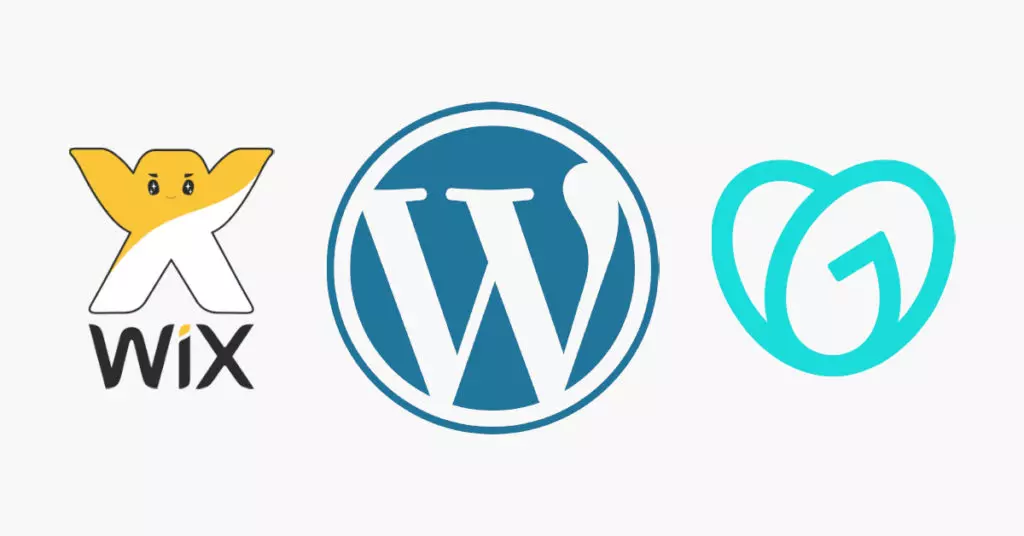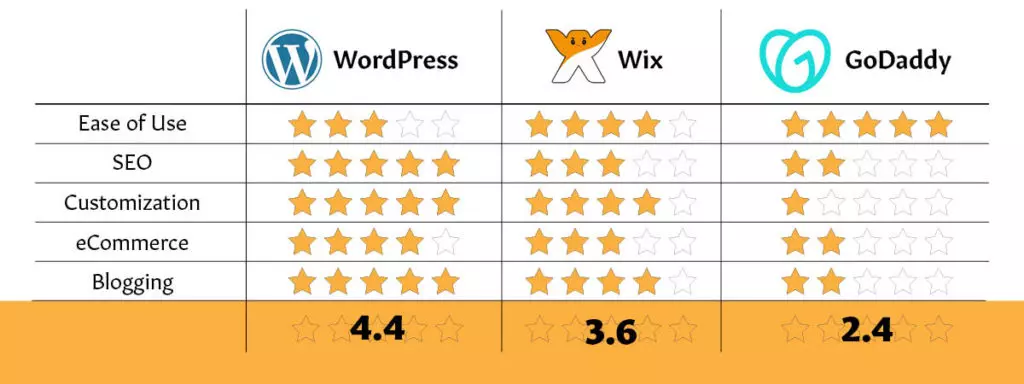Why We Believe WordPress Is the Best Builder Available
WordPress is one of the many website builders out on the market. Choosing the right platform can difficult since there are so many options. Knowing this, we want clients to get the best option out there and decided to make a case for what we believe to be just that… WordPress. For the purposes of this blog, we are going to compare WordPress to two other popular options, Wix and GoDaddy.

Key Differences With Blogging + eCommerce
Let’s look at the big picture. Each builder incorporates some essential needs for businesses. But that doesn’t mean they all manage them well or boost your site’s ranking.
When it comes to blogging, there’s a clear “winner.” WordPress started as a blogging platform and then later morphed into a website builder. WordPress comes with all the features that you would expect plus advanced features that are missing from Wix and GoDaddy. Some of the advanced features include search engine optimization (SEO) plugins to help your site rank higher.
The GoDaddy builder is okay and allows you to have the basic features of a blog but is not a top contender due to lack of customization. The same goes for Wix. Wix allows you to easily add blog sections and also comes with all the blogging features you will most likely use. Yet, the comments on Wix’s blogs are slow and not as easy to manage. You are also unable to backdate posts or create private posts with Wix. The plain text editor used in Wix limits formatting options which can hinder your branding consistency. GoDaddy has also received reports of glitchiness and slow response times.
As far as eCommerce goes, WordPress is extremely easy to create your free online store with WooCommerce. WooCommerce does have applicable transaction fees when using PayPal, Stripe, or other payment processors but doesn’t require additional fees to integrate with your site. Wix has their own store option and the ability to connect several eCommerce platforms like PayPal and QuickBooks.
Plugins
The next thing we considered were the plugins available through each builder. Wix refers to their plugins as “web apps.” Offering more than 250 powerful integrations, it is definitely a top competitor for WordPress. GoDaddy has a more limited selection of plugins. From that selection, there aren’t many features that will boost performance as much either.
WordPress on the other hand blows both Wix and GoDaddy out of the water. When building your brand and website, there are more than 59,000 plugin options. Additional SEO plugins are available to boost your site’s ranking as well as the most popular eCommerce solutions, WooCommerce. One of our favorite WordPress plugins is SmartCrawl Pro. From an SEO perspective, it aids in site performance by providing feedback on titles, meta descriptions, schema and more.
The Final Verdict: GoDaddy vs Wix vs WordPress

When it comes down to it, the key is flexibility. WordPress is the superior web publishing platform and builder. Wix is easy to use but limits you in crucial website ranking areas and locks you into their system. GoDaddy is very basic and only achieves so much before the costs become more than the benefits.
As your business and client needs grow and change, WordPress is a builder that has more advanced features that grow with you. You have a ton of control over your design and SEO to set yourself ahead of your competition.
But don’t worry about the how. Let us help you build your brand. Contact our professionals at Dot Marketing and Design to make the move to WordPress. We can help you design and maintain the website that speaks to your customer base. At Dot Marketing and Design, we can host your site and continue monitoring and managing security, functionality, performance, seasonal updates, and more

